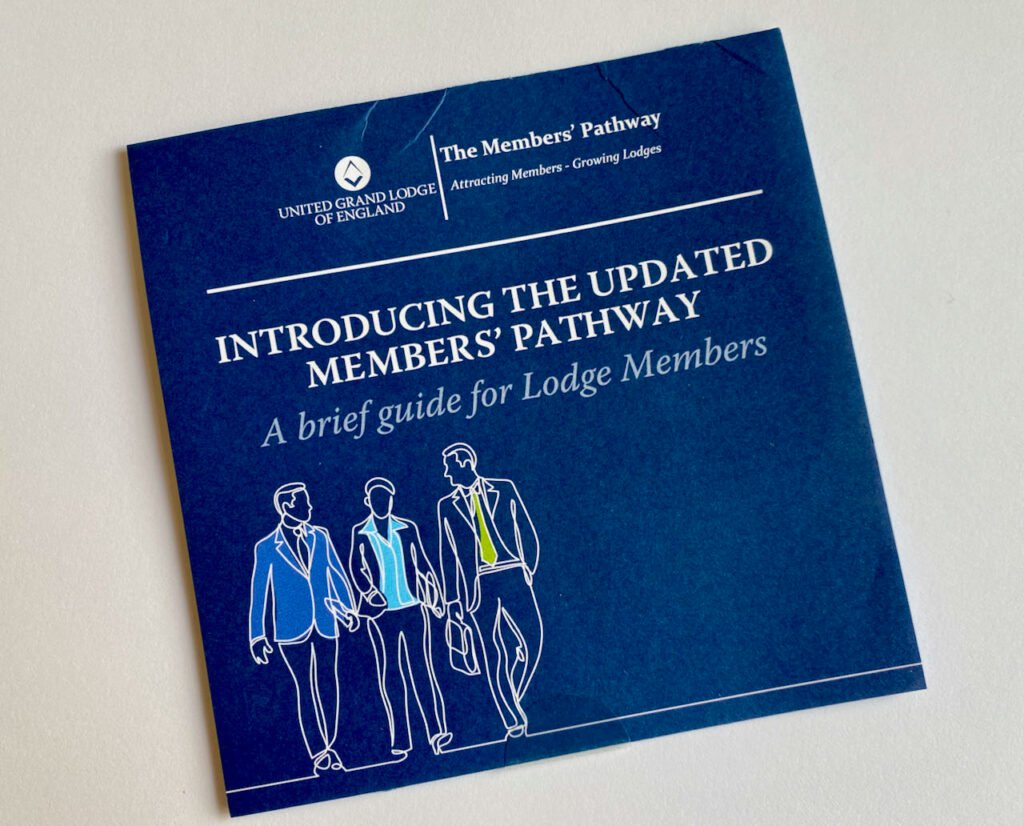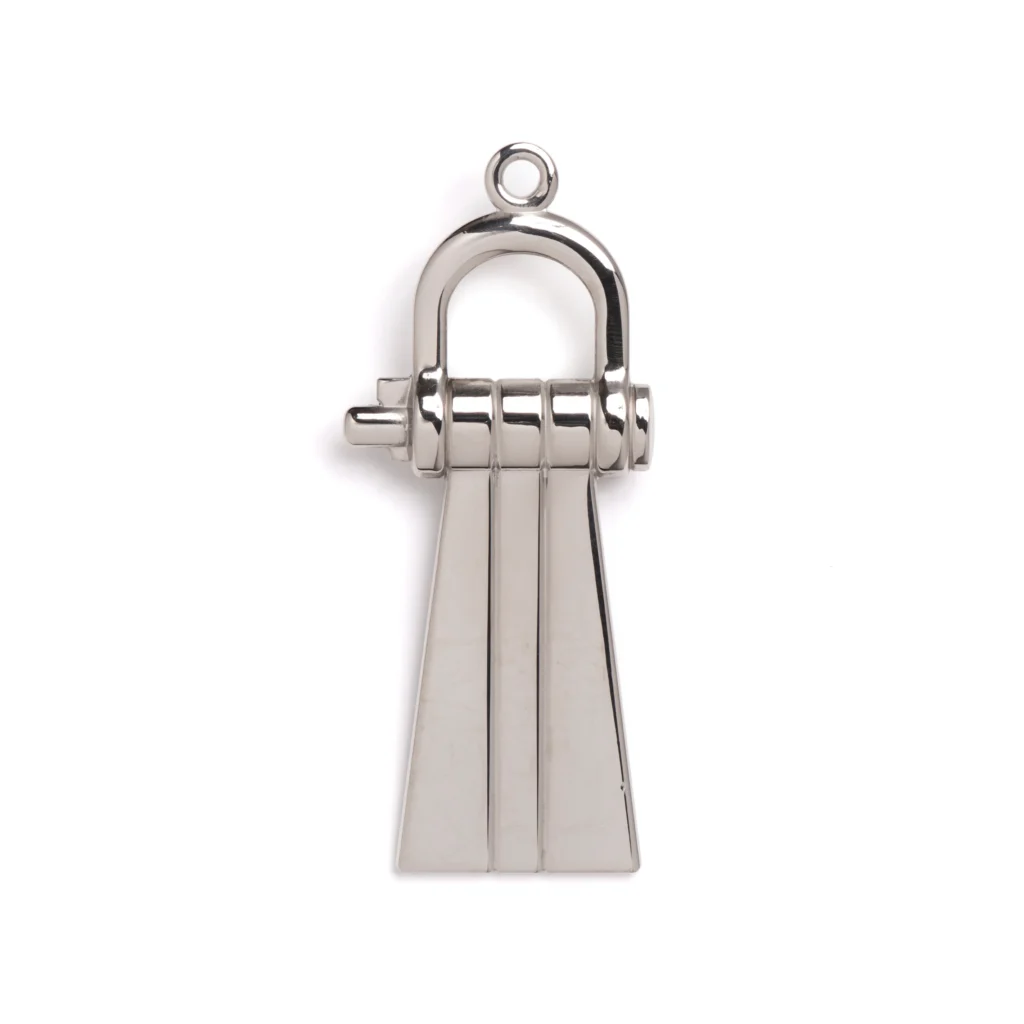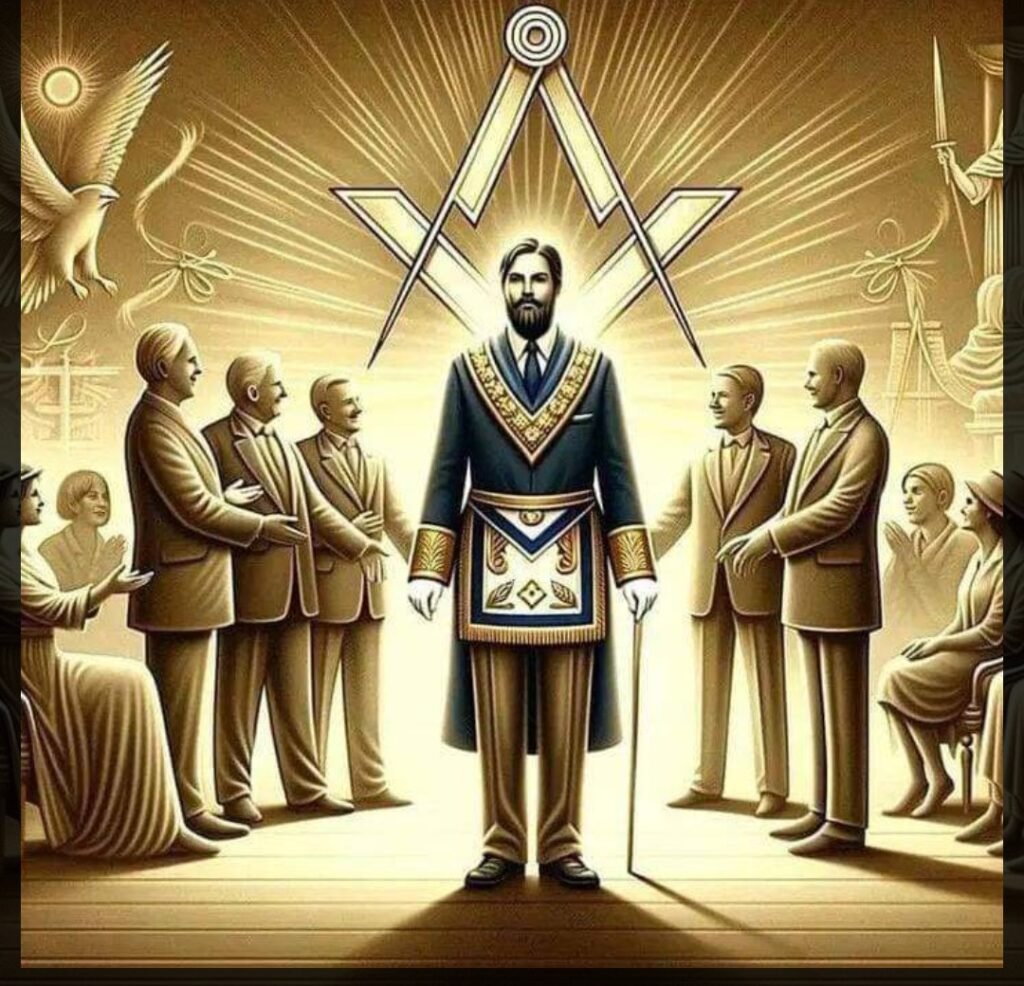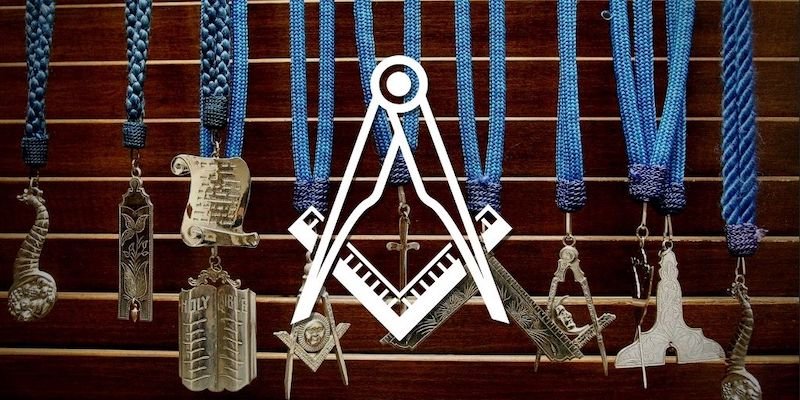I wanted to share some news with you all. My participation in my mother Lodge over the last few years has earned me the honour of being asked by the upcoming Master Elect, to be the membership officer for the ensuing year. A position I am very enthusiastic about, as one of the more active members, I am looking forward to stepping up and taking a more active role in the continuation of the Lodge, as I feel a great sense of pride for the history of my Lodge. To be part of the team that will ensure many more years of Lodge activity gives a person a sense of pride and responsibility, all good things that make us strive for greater things in life. My enthusiasm for the role has led me to already be on the hunt for new members with some success.
The United Grand Lodge of England (UGLE), when developing the “Membership Pathway”, introduced the role of membership officer back in 2015. This initiative aimed to address the declining membership numbers and plays an important role within the Lodge, as without an active involvement to increase the number of members within the Lodge, the gradual decline to the closure of the Lodge would be inevitable. As has been the fate of many Lodges recently, from what I’ve been hearing. Recently, I even had the opportunity to attend the closure of a very well-known Lodge in my area. William Cobbett Lodge, #7914, consecrated on September 23, 1963, was a Lodge that had stood the test of time and was very well known for travelling around the area to give remarkable lectures to other Lodges, helping with their advancement in Masonic knowledge.
Although it is very sad to see a Lodge close, it was the first time I was afforded the opportunity to witness this ceremony, and it is something that I will never forget. If you have the opportunity to attend a closing of a Lodge, I would highly recommend that you attend it. It is a wonderful ceremony and one that is not seen very often for obvious reasons. As with everything in life, there are opposites to everything. To have a closing, one must first have an opening, so I am now keeping a keen eye open for a consecration in my local area to attend, as I am sure it will be just as enjoyable to witness.
Getting back to the Membership officers’ role. As a fairly new role within the Lodge in the last few years, my Province has detailed the role on the official website to outline the main responsibilities.

As a key member of the Lodge Membership Team (Lodge Membership Officer / Mentor / Almoner / WM & Secretary) who, together with other members, coordinates the Lodge’s activities using the Members’ Pathway and focuses on activities from planning, through to the candidate’s initiation, through the three degree’s and beyond.
The Purpose of the role is:
- To lead in the development of the Lodge Membership Action Plan.
- To inspire and encourage all Lodge members to identify suitable candidates
- To support sponsors following the introduction of potential candidates
- To advise on procedures that ensure only candidates suitable to the Lodge are proposed
Main activities
- Informs, guides, and supports Lodge members in:
- Reviewing Lodge practices
- Producing the Lodge Outline and candidate profile
- Planning for the Lodge’s future
- Identifying prospective candidates
- Advising what can and what should be said to a prospective candidate
- Speaking with confidence about membership
Being ready to explain one’s experience and enjoyment of Freemasonry
- Act as an “Agent for Change” by continually challenging the status quo of the Lodge in order to improve the membership experience, especially for new or less experienced brethren
- Encourages and helps members speak openly about their membership with confidence
- Encourages the Lodge to create a Lodge Plan, including a Lodge Profile, a Candidate Profile and a Lodge Information Sheet
- Facilitates discussions and contributions from other Lodge members
- Maintains a list of “prospective candidates” and monitors the progress of the Lodge members who have agreed to approach them
- Responds to enquiries from “potential candidates” not previously known to existing members and supports them through the joining process
- Supports and assists sponsors and ensures they have completed their preparation of applicants for the interview.
- Leads members to sources of advice on interviewing techniques, attends interviews and ensures they follow a robust process.
- Supporting the Lodge Mentor and Almoner, be aware of why Brethren are not attending – maintain contact & communicate reasons or any problems to the Membership Team and GPC.
- Early identification of brethren who can fill non-progressive roles, ensuring no “blockers” (max. 5 years)
- Ensure every Past Master is given the opportunity to fulfil a role in the Lodge that best suits their talents and potential.
- In all the above, work with other members of the Lodge Membership Team.
- Liaise with Lodge Visiting Officer / Area Membership Officer / Centre Membership Officer.

As with every office in the Lodge, the new role of Membership Officer is invested with a collar and a Jewel. The Jewel for this office is The Lewis.
The Lewis symbol, derived from the tool used by stonemasons to lift heavy stones, is a three-pronged iron cramp that is inserted into a prepared cavity in a stone. It allows for the precise lifting and placement of heavy stones using pulleys and ropes, requiring relatively little physical effort.
In Freemasonry, it represents strength, both physical and metaphorical. It signifies the ability to overcome challenges, obstacles and to lift oneself up and others, while having the ability to support burdens and challenges in life. Not just in the Lodge, but using one’s abilities to help others and contribute to the well-being of the community.
Furthermore, in some Masonic jurisdictions, the term “Lewis” also refers to the son of a Freemason, who may even be bestowed with the jewel, highlighting the duty to support and guide, mirroring the tool’s function. This is because the son is seen as having the duty to support and assist his parents in their old age, symbolising the transmission of strength and support from one generation to the next, much like the Lewis tool supports and lifts stones.
The Lewis is significant because it is a tangible way to honour the bond between a father and son within the Masonic context, emphasising the importance of familial relationships. For new members who join the fraternity through family ties, it signifies a continuation of Masonic traditions and values.

I currently have four sons, ranging from the ages of 16 to 7 months, who may become Freemasons in the future if they choose to. Two out of the older three have already shown some interest in joining, so there may be opportunities for them to become a Lewis’s in the future, something that I will be very proud of. For them to have the opportunity to join at such a young age, to reap the benefits of Masonry in the building of their character, is something I am quite jealous of, as I didn’t join until I was in my mid-thirties. For I have thought on many occasions, what or who I would have become if I had found Masonry earlier in my life to give me direction and guidance. But then again, I’m sure we have all had thoughts like that at some time or another. What could have, or would have been, if we had made different choices at certain points in our lives?
For those of you that read this who are not Masons yet, and I say not yet! as I believe that you would not be reading this if you were not interested in Freemasonry and possibly becoming a member. The sense of belonging and duty that is rewarded to you as you progress through the degrees and overall journey, is in my opinion, some of the many benefits you receive and that gives you such a sense of pride and joy. That you are contributing to the continuation of such an ancient fraternity as a whole and the legacy of your Lodge in particular is in my opinion definitely something to be proud of.
And this is what I hope I can do. To contribute to bringing many new but also true and dedicated Masons into the lodge, so that the lodge will continue after I am gone for many more years.
